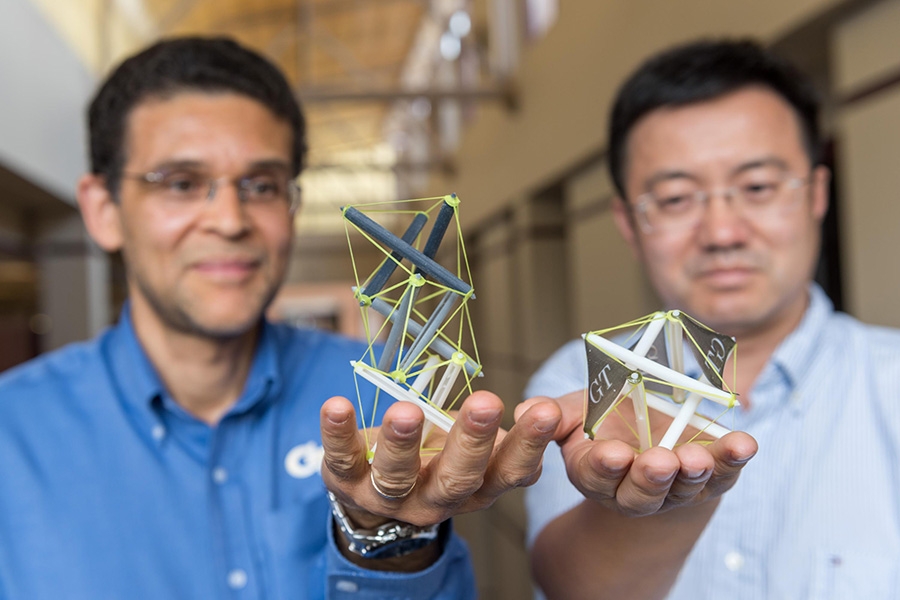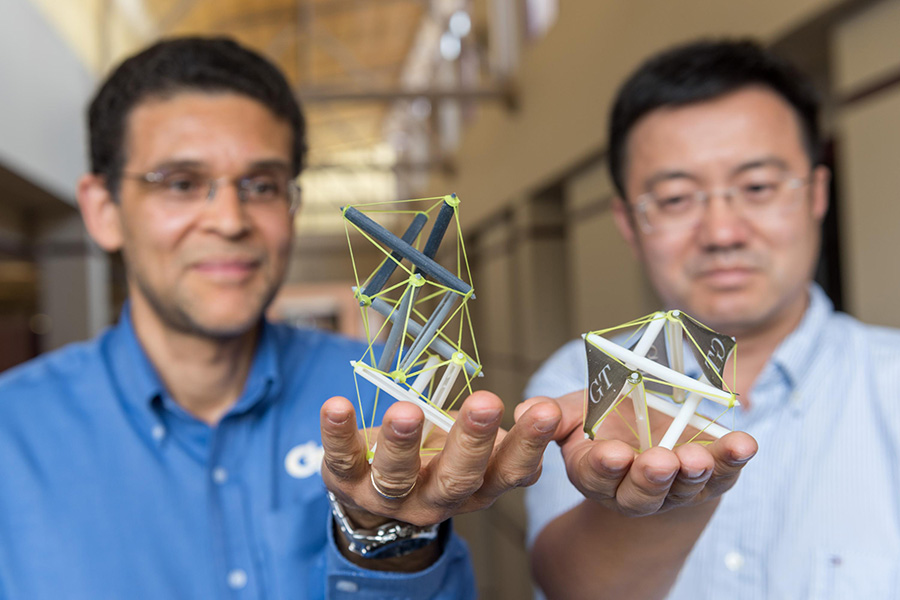
 Georgia Tech researchers Glaucio Paulino, left, and Jerry Qi hold 3-D printed objects that use tensegrity, a structural system of floating rods in compression and cables in continuous tension. They’ve developed a new way to create structures with “memory” that can expand dramatically when heated. (Photo: Rob Felt) |
Glaucio Paulino and his collaborators in mechanical engineering have won Sigma Xi’s top award for faculty research published in 2017.
The Best Faculty Paper Award goes to an outstanding piece of research presented in the previous year. Paulino won with Jerry Qi for their work on 4-D printing structures using a structural concept called tensegrity. Using polymers that can “remember” their original shape, the team printed objects that can expand dramatically when heated.
“I was quite surprised, and I am humbled by the award,” said Paulino, who is the Raymond Allen Jones Chair in the School of Civil and Environmental Engineering. “The interdisciplinary nature of the work is an outcome of the great research environment at Georgia Tech.”
Qi is a professor in the George W. Woodruff School of Mechanical Engineering. He and Paulino published their findings in the journal Scientific Reports in June along with graduate students Ke Liu and Jiangtao Wu.
“Essentially, the paper shows how to use 3-D printers to create expanding objects that could find applications ranging from space missions to biomedical devices,” Paulino said, explaining that tensegrity is a structural system of floating rods in compression and cables in continuous tension. To “program” their structures, the researchers printed the rods with shape-memory polymers that unfold when heated.
“With the exclusive properties of tensegrity and remote-controllable actuation by temperature, we can foresee the great potential of active tensegrity in a broad variety of applications,” Paulino said. “The new technology can lead to innovations in several fields of science, adding new tools to space and medical exploration industries alike. These objects can be both scaled up and made much more complex, as for space structures, or scaled-down, to the size of something that could fit in the human body.”
The team will accept their award at Sigma Xi’s annual awards banquet in April. They’ll also be recognized at Georgia Tech’s Faculty and Staff Honors Luncheon.
“Receiving the award from Sigma Xi has a special meaning to me [because] the scientific research society was founded at Cornell University, which is my alma mater,” Paulino said.
